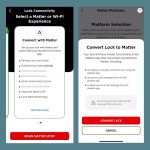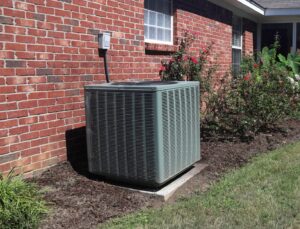Leasing vs. Buying Solar Panels: Which Option is Best for Homeowners?

Solar energy is increasingly popular for homeowners who wish to reduce their carbon footprint and save on electricity costs. However, the high up-front costs of solar panel systems can be a significant barrier for consumers on a budget. This is where the decision between leasing and buying solar panels comes into play. Each option has its own set of advantages and disadvantages, and the right choice depends on a homeowner’s specific circumstances and goals.
This article explores the key differences between buying and leasing solar panels so you can make an informed choice about which option is best for your needs.
Key Differences Between Leasing and Buying Solar Panels
When considering solar panels for a home, you should understand the fundamental differences between leasing and buying. These differences impact not only the initial investment but also long-term savings and responsibilities.
Ownership and Responsibility
Your degree of involvement and control over the solar panels depends heavily on the level of ownership. When you purchase solar panels, you own the system outright. This means you’re responsible for maintenance and repairs, but you also have full control over the system. On the other hand, leasing solar panels means the leasing company retains ownership and typically handles maintenance and repairs.
Leasing also means the company that owns the panels decides on upgrades and modifications. Full ownership gives you the freedom to upgrade or adjust the system whenever necessary, but you must pay for repairs, changes, and maintenance yourself.
Up-Front Costs
Buying solar panels requires a significant up-front investment, which can be a deterrent for some homeowners. This initial expenditure, however, is seen as an investment that pays off in the long run with lower energy costs. Leasing solar panels typically involves little to no up-front costs, making them more accessible for those with limited capital. This financial model allows more homeowners the opportunity to adopt solar energy without draining their savings or requiring sizable loans.
Long-Term Savings
While buying solar panels may cost more initially, it typically leads to greater long-term savings. Homeowners who purchase a system avoid monthly lease payments and utility rates that may increase over time. Leasing, while more affordable up-front, typically results in lower cumulative savings over time. The difference in savings can be substantial over the life span of the solar panel system, and it is influenced by factors such as local utility rates and solar energy production efficiency.
Access to Incentives
Homeowners who buy solar panels may be eligible for various incentives, including the federal solar tax credit, as well as state and local rebates. Such incentives can greatly reduce the overall cost of the system. Leasing customers, however, don’t have access to these financial benefits as the leasing company typically claims them. This loss of incentives represents a missed opportunity for additional financial savings for homeowners who choose to lease.
Cost Comparison: Leasing vs. Buying Solar Panels
Understand the financial implications of each option to make an informed decision. Here’s a breakdown of the costs associated with leasing and buying solar panels.
Cost of Leasing Solar Panels
Leasing solar panels typically involves monthly payments ranging from $50.00 to $250.00. Over a standard 25-year lease term, this could amount to between $12,000 and $75,000 in total payments throughout the lease. Additionally, many solar leases include price escalators, which increase monthly payments over time. Carefully examine the lease agreement to understand the long-term financial commitments involved and to avoid unexpected expenses.
Advantages of Leasing Solar Panels
The up-front cost of buying a solar panel system can range from $12,500 to $24,000, depending on the system size and location. Some systems can cost over $30,000. While this initial investment is substantial, it’s offset by long-term savings on electric bills and potential increases in home value. The purchase of a solar system is often seen as a hedge against future energy price hikes, providing a stable and predictable cost for electricity consumption over the decades. Furthermore, owning a solar panel system may increase the resale value of a home, making it an attractive feature for potential buyers.
Financing Options for Buying Solar Panels
For those who can’t afford to purchase a system outright, various financing options are available, including solar loans, home equity loans, and cash purchases on a payment plan.
Financing can help you spread the cost over time while still enjoying the benefits of ownership. Solar loans and home equity loans come with their own terms and interest rates, which can impact the total cost of the solar panel system. Compare all the available financing options to choose the one that best fits your financial situation.
Pros and Cons of Leasing Solar Panels
Leasing solar panels is an attractive option for some homeowners, but it’s important to weigh the advantages against the drawbacks.
Advantages of Leasing Solar Panels
- Low or no up-front costs: This makes solar energy more accessible to those without the capital for an outright purchase.
- Maintenance typically handled by the leasing company: This alleviates the homeowner from the responsibilities of upkeep, repairs, and system monitoring.
- Immediate reduction in electricity bills: Leasing provides a quick reduction in electricity costs without significant up-front spending.
Disadvantages of Leasing Solar Panels
- Limited long-term savings compared to buying: Monthly lease payments can add up over time, leading to less overall savings.
- Ineligibility for solar tax credits and incentives: The financial benefits from government incentives typically go to the leasing company, not the homeowner.
- Potential difficulties when selling a home with a leased system: Buyers may be hesitant to take over a lease, potentially complicating the sale process.
- Long-term commitments: These long-term contracts of 20-25 years can be restrictive if circumstances change, such as moving to a new home.
Pros and Cons of Buying Solar Panels
Purchasing a solar panel system offers significant benefits but also comes with certain responsibilities.
Advantages of Buying Solar Panels
- Greater long-term savings: Once the system is paid off, the energy it generates is essentially free.
- Eligibility for solar tax credits and incentives: These financial perks can substantially reduce the overall cost of the system.
- Increased home value: Solar panels can be attractive to homebuyers, potentially increasing the resale value of the property.
- Full control over the system: Ownership allows for upgrades, modifications, and the ability to sell the system as part of the property.
Disadvantages of Buying Solar Panels
- High up-front costs: The initial investment can be substantial, which may be a barrier for many homeowners.
- Responsibility for maintenance and repairs: Homeowners are responsible for the upkeep and functionality of the system.
- Potential for technology to become outdated over time: As technology advances, older systems may become less efficient or obsolete.
Factors to Consider When Choosing Between Leasing and Buying
Several factors can affect your decision when choosing between leasing and buying solar panels. Your financial situation is a primary consideration, as you must have the ability to meet the up-front investment to purchase a solar panel system. Additionally, you should consider how available tax credits and incentives can affect the system’s affordability.
You should also consider your long-term plans for the property. Buying can improve the long-term value of your home if you plan to stay for an extended period. Depending on your desire for control or responsibility, you may prefer buying over leasing so you can upgrade or modify the system as you like.
Finally, you should review your local and regional market conditions and electricity rates. If your local electrical grid provides affordable energy at a lower cost than your solar panel lease, leasing may not be your best option. Similarly, consider whether you can make up the cost of your solar panel purchase with energy savings if you decide to buy the system outright.
How to Decide: Is Leasing or Buying Solar Panels Right for You?
Determining whether to lease or purchase solar panels is a personal decision based on your own specific circumstances.
When Leasing Solar Panels May Be the Better Choice
Leasing might be more suitable if you have limited up-front capital or don’t qualify for solar loans due to credit issues. You may also benefit from leasing if you don’t want to handle system maintenance and repairs.
When Buying Solar Panels is the Recommended Option
Buying is often the better choice for homeowners who have the financial means to invest up-front or qualify for favorable loan terms. Buying is also ideal if you plan to stay in your home long-term and wish to maximize savings and return on investment. If you want to take advantage of tax credits and incentives, buying solar panels is also the best choice.
Steps to Take When Leasing or Buying Solar Panels
Whether you plan to lease or buy, take the following steps to streamline the process and avoid common pitfalls.
- Research reputable solar companies in the area to find trustworthy providers.
- Obtain multiple quotes and compare offers.
- Review contracts carefully, paying attention to terms and conditions.
- Consult with a solar expert or financial advisor.
- Ensure the roof is in good condition and suitable for solar panel installation.
Final Thoughts About Leasing vs. Buying Solar Panels
The decision between buying and leasing solar panels requires careful consideration of various factors. While leasing offers an accessible entry point into solar energy with lower up-front costs, buying provides greater long-term financial benefits and control over the system.
Ultimately, making the best choice relies on your unique circumstances, including your financial situation, long-term plans, and energy goals. By weighing the pros and cons of each option and considering personal preferences, you can make an informed decision consistent with your needs that maximizes solar energy benefits for your home.
Read also: Solar Panels Power Generation Output
FAQs about Leasing vs Buying Solar Panels
What is better, buying or leasing solar panels?
Buying a solar energy system is a much better option than leasing solar panels. Purchasing solar panels will save you more money in the long run despite higher upfront costs. When your lease agreement is up, you’re left with nothing, whereas you’ll own your solar system once you finish paying off your loan.
Is leasing solar panels worth it?
Probably not. Leasing a solar power system burdens you with monthly payments that are only slightly lower than solar loan payments would be, with the considerable disadvantage of continuing for 20 to 25 years. Solar leases also typically have planned rate increases that make your monthly payments increase with time, and leasing panels doesn’t reduce your electric bill as much as owning them.
What is the downside of leasing solar panels?
There are many downsides to leasing solar panels, but the biggest one is reduced electricity savings in the long run. When your lease is up, your electric bill returns to normal, but when you finish paying off a solar loan, your electricity remains free.
Leasing solar panels also prevents you from participating in any net metering programs your local electric company offers and doesn’t allow you to take advantage of solar tax credits or sales tax exemptions.
What is the difference between a solar lease and a power purchase agreement?
A solar lease is a deal with a solar company to pay a monthly rate for access to solar panels that the company installs on your roof. You can think of it the same way you think of renting a car. You get to use the solar panels you’re leasing and take advantage of the solar energy they produce, but you don’t own the solar panel system.
A power purchase agreement, or solar PPA, is an agreement to purchase the electricity the panels generate, so your monthly payment depends on how much energy you use. PPAs are similar to paying the electric company for the energy you use each month per kilowatt-hour, only you pay the solar panel provider instead.







Leave a Reply